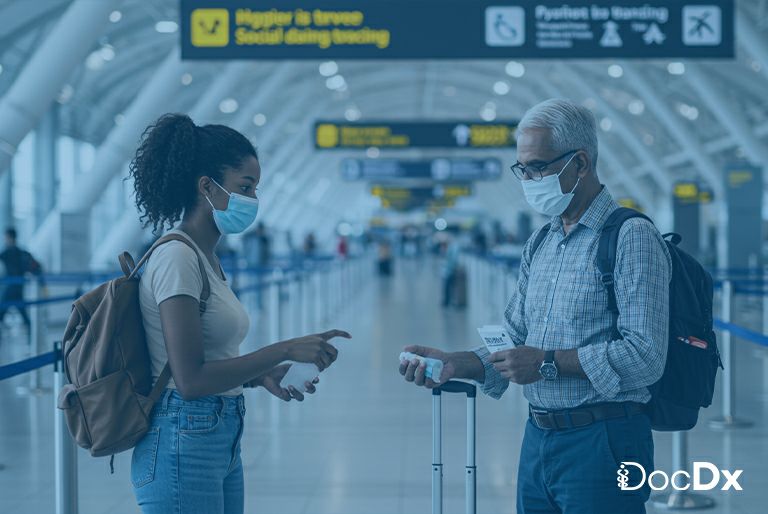Traveling abroad can be exciting, but it also comes with responsibilities especially when it comes to your health. If you’re heading to a region where malaria is common, you might be wondering: Do I really need to take malaria medication before traveling? This guide breaks it down in a simple, practical way so you can make informed decisions and travel with peace of mind.
What is Malaria?
Malaria is a serious disease caused by parasites transmitted through the bite of infected mosquitoes. While it’s preventable and treatable, malaria can become life-threatening if ignored. The symptoms often include:
- Fever and chills
- Headaches and body aches
- Nausea or vomiting
- Fatigue
Because these symptoms can resemble the flu, some travelers underestimate the risk. But malaria is far more dangerous and should be taken seriously.
Where is Malaria Most Common?
Not every destination carries malaria risk. The disease is most common in:
- Sub-Saharan Africa
- South and Southeast Asia
- Central and South America
- Parts of the Middle East and Oceania
Checking the Centers for Disease Control and Prevention (CDC) or World Health Organization (WHO) website before your trip can help you identify whether your travel destination requires extra precautions.
Do You Need Malaria Medication Before Traveling?
The short answer: It depends on where you’re going.
If your trip includes areas with high malaria transmission, preventive medication (known as chemoprophylaxis) is usually recommended. A primary care provider or travel medicine specialist can help determine which type of medication suits your itinerary, health status, and travel duration.
Types of Malaria Prevention Medications
There isn’t a one-size-fits-all solution. The most commonly prescribed medications include:
- Atovaquone-proguanil (Malarone): Easy to take daily, generally well-tolerated.
- Doxycycline: Daily medication, also helps prevent some other infections.
- Mefloquine: Weekly dosing, but not suitable for everyone due to side effects.
- Chloroquine: Only used in areas where malaria parasites remain sensitive to it.
Your provider will weigh factors like age, medical history, existing conditions, and pregnancy status before prescribing the best option.
Other Ways to Reduce Malaria Risk
Medication is important, but it’s not the only line of defense. Preventive steps can make a big difference, such as:
- Sleeping under insecticide-treated bed nets
- Wearing long sleeves and pants, especially at dusk and dawn
- Applying mosquito repellent with DEET, picaridin, or oil of lemon eucalyptus
- Staying in well-screened or air-conditioned rooms
Together, these measures significantly lower your chances of getting infected.
When to See a Doctor Before Traveling
Ideally, schedule a travel health consultation 4–6 weeks before departure. This gives your provider time to:
- Review your travel itinerary
- Prescribe the right malaria medication (if needed)
- Discuss other vaccines and preventive care
- Answer questions about health risks at your destination
👉 For comprehensive travel health guidance, explore DocDx’s Travel Vaccinations service to prepare before your trip.
What If You Forget to Take Preventive Medication?
Skipping doses can reduce the effectiveness of malaria prevention. If you miss a dose:
- Take it as soon as you remember (unless it’s almost time for your next dose).
- Continue the medication for the full course, even after returning home.
- If you develop fever or flu-like symptoms during or after travel, seek immediate medical care and mention your recent travel history.
How Primary Care Providers Can Help
Primary care isn’t just about annual check-ups—it’s also about keeping you safe before, during, and after travel. At DocDx, providers can:
- Review your medical history and medications
- Prescribe malaria prevention medicine
- Provide guidance on safe travel practices
- Offer follow-up care if you feel unwell after returning
Explore more here: Primary Care Services.
The Connection Between Travel and Preventive Health
Traveling often exposes you to health risks you wouldn’t face at home. By taking preventive steps—whether it’s malaria medication, routine vaccines, or pre-travel screenings—you protect not only yourself but also your loved ones when you return.
DocDx also shares valuable advice on staying safe abroad: Essential Tips to Prepare for Safe Travel.
Conclusion
If you’re traveling to a malaria-prone region, don’t leave your health to chance. Preventive medication and simple protective measures can keep you safe and give you peace of mind during your journey. A quick visit to your primary care provider can make all the difference.
Schedule Your Travel Health Consultation Today!
Ensure you’re protected before your trip. Our team can advise you on malaria prevention, vaccinations, and more.



